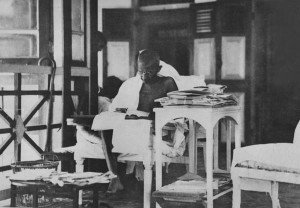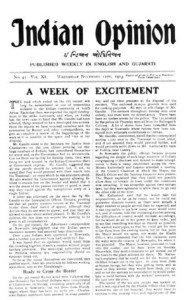By Petamber Persaud

My reading is such that I see red, green and amber sojourning through a book. I usually change gears, automatically – speeding up, slowing down, and reversing. Sometimes, I stop. Often, I would go into neutral. Neutral may be my favourite position when reading. I go into neutral at any inter-textual references which do not give up their meaning/s readily especially references to other books.
While wading through Gandhi’s “The Story of my Experiments with Truth”, which I am re-reading as we celebrate International Literacy Day, I had to pause at many such references, some of which I would like to share.
Mohandas K. Gandhi was born Oct. 2, 1869, in Porbandar, Gujarat, India. He was shy at school, shying away from sports and games but managed to win prizes and scholarships. His formative days and adulthood were fraught with challenges to be untruthful, disrespectful to elders, to eat meat, to drink alcohol and smoke, among other things, all of which he overcame mostly by experimenting with each subject/issue.




